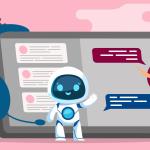We’ve all needed a quick solution—whether it’s resetting a password or troubleshooting an issue. That’s where the Salesforce Help page comes in. With over 60 million visits a year, customers rely on it for everything from troubleshooting to developer support. But what if getting the right help was faster and more personalised?
Salesforce saw an opportunity to enhance the customer experience by integrating AI into customer success. By using Agentforce, they streamlined routine requests and freed up support reps to focus on more complex issues. Salesforce saw an opportunity to enhance self-service, reduce wait times, and free up reps to focus on high-value, one-on-one support.
Today, AI plays a critical role in transforming key customer success metrics for CX leaders. It helps businesses predict customer needs, streamline experiences, and boost engagement. By analysing vast data sets, AI enables CX leaders to optimise key performance indicators (KPIs) like never before.
Discover Agentforce
Agentforce provides always-on support to employees or customers. Learn how Agentforce can help your company today.



AI in Customer Success: Every Business Can Benefit
It’s not just technology giants that are benefiting from AI. Organisations of all shapes and sizes are using AI tools to transform customer experience and improve KPIs.
AI in Action
Panasonic Asia Pacific provides the whole range of the brand’s products and solutions across the Southeast Asia and Pacific region. Panasonic is now using Agentforce to provide even more efficient support. An AI agent works alongside customer advisors to triage customer requests and recommend solutions. The agent uses Retrieval Augmented Generation to search across structured and unstructured data in Data Cloud, including product manuals and troubleshooting instructions. So, the agent can then provide accurate answers and recommendations to help team members resolve issues fast.
At FairPrice Group, Singapore’s leading retail company, operates over 570 touchpoints to provide daily essentials and personalised experiences. With AI in Service, FairPrice Group has achieved an 80% case deflection rate and reduced response times, while also seeing a 10% decrease in the cost per support ticket and a double-digit increase in employee engagement.
What You Are Missing Without AI
AI’s ability to analyse data, recognise patterns, and predict trends through business intelligence systems has a powerful twofold effect. 1) It directly improves the customer experience and 2) It is enhancing the way metrics are measured.
First, it helps create more seamless, personalised interactions for customers, leading to better engagement, higher satisfaction, and stronger loyalty. At the same time, AI tools make it easier to track and measure key metrics with precision. They can analyse vast amounts of data in real-time, offering deeper insights into trends and areas for improvement. This combination of enhanced experiences and better measurement gives businesses a strong advantage in refining their strategies and achieving their metric goals.
KPIs to Watch (and How AI Can Help)
Before diving too far into what tools to consider, here’s a quick overview of the metrics that matter most and how AI can help improve them.
- Customer Satisfaction Score (CSAT): Measures how satisfied customers are with a product or service. AI can analyse survey data and feedback to identify trends and improve satisfaction.
- Net Promoter Score (NPS): Gauges the likelihood of customers recommending a brand. AI helps by identifying patterns in promoter and detractor behaviour and suggesting actionable improvements.
- Customer Effort Score (CES): Assesses how easy it is for customers to resolve issues or complete transactions. AI can streamline processes and automate responses to lower customer effort.
- First Contact Resolution (FCR) & Average Resolution Time: Indicates the percentage of issues resolved during the first interaction and measures the time it takes to resolve customer queries. AI tools, like chatbots, can reduce resolution times by providing instant support or by enabling agents with real-time data and insights.
- Churn Rate/Retention Rate: Reflects the percentage of customers who stop or continue using a service. AI predicts churn and helps design proactive retention initiatives.
- Engagement Rate: Measures how actively customers interact with a brand. AI tracks engagement metrics and suggests personalised strategies to boost interaction.
Whether it’s NPS, CLV, Churn, or any other KPI that you are looking to improve, there are several ways you can fold AI in to help – let’s dive into some specific tools and use cases.
Build the AI service agent you need with our step-by-step guide
Get started with a free guide to configuring and perfecting your AI service agent in Agentforce..



AI Tools for Improving Customer Experience by Use Case
Below, we break down common Customer Experience challenges and pair them with AI tools that provide effective solutions, offering a closer look at their capabilities and impact.
1. Improving Customer Behaviour Prediction with AI
CX Metrics Impacted: Customer Satisfaction (CSAT), Retention Rate, Repeat Purchase Rate
Understanding and predicting customer behaviour allows businesses to anticipate needs and offer proactive solutions. Predictive analytics leverages historical and real-time data to forecast actions such as purchasing patterns, potential churn, and product preferences.
Tool: Predictive Analytics Platforms
These tools use machine learning algorithms to identify trends and provide actionable insights into customer behaviour. Advanced platforms integrate seamlessly with CRM systems to continuously update customer profiles.
2. Enhancing Customer Retention with Personalisation
CX Metrics Impacted: Customer Retention, Customer Lifetime Value (CLV), Average Order Value (AOV)
AI-powered personalisation tools analyse behaviour, preferences, and historical data to tailor customer interactions across channels. These tools make each customer feel uniquely understood and valued.
Tool: Personalisation Engines
These AI tools analyse browsing history, purchase data, and customer feedback to deliver real-time content recommendations, personalised email campaigns, or targeted promotions.
3. Reducing Churn and Elevating Insights with AI
CX Metrics Impacted: Churn Rate, Net Promoter Score (NPS), Customer Effort Score (CES)
AI-powered sentiment analysis tools use NLP to analyse chat logs, emails, and social media, uncovering customer emotions and dissatisfaction early. By processing vast amounts of feedback, these platforms provide real-time insights and visual dashboards, helping businesses proactively address concerns and reduce churn.
Tool: Sentiment Analysis Software, VoC Analytics Platforms
AI-powered Sentiment Analysis Software and VoC Analytics Platforms help businesses proactively reduce churn and enhance customer insights. Using natural language processing (NLP), these tools analyse text and audio data to assign sentiment scores, enabling teams to identify dissatisfaction early and prioritise outreach. By processing vast amounts of customer feedback, they uncover key themes and trends, refining messaging and improving engagement strategies. Many platforms also offer dashboards to visualise sentiment shifts over time, empowering businesses to make data-driven decisions that enhance customer experience.
4. Optimising Customer Support with AI Automation
CX Metrics Impacted: First-Response Time, Resolution Time, Operational Efficiency.
Automation tools streamline repetitive tasks, ensuring quicker resolutions and freeing up agents to handle complex inquiries. This approach improves efficiency and maintains consistent quality across all customer interactions.
Tool: Autonomous Agents
Autonomous agents are an advanced form of AI that can independently execute a series of tasks, and learn as they go.
Use Case Example: A retail company trains Agents to answer 70% of customer inquiries, including product availability and returns policies. For unresolved issues, the Agent forwards cases with context, reducing agent workload.
5. Enhancing Self-Service Capabilities
CX Metrics Impacted: First-Contact Resolution Rate, Customer Effort Score (CES), Operational Costs.AI Tools Enhancing Customer Success
AI tools empower customers to solve problems independently, reducing dependency on agents while maintaining high-quality service.
Tool: Service Cloud Self-Service
Agentforce can connect customers to relevant answers and provide personalised support from anywhere at scale.
Use Case Example: See how financial institutions can enhance customer satisfaction and deflect cases with AI-powered self-service tools like Service Agent. This empowers customers by providing proactive support and quick resolutions to their inquiries.
How AI Agents Bring All of These Use Cases Together
As AI agents continue to evolve, their impact on customer success will only grow stronger. By leveraging AI-driven insights, CX leaders can proactively address customer needs, refine engagement strategies, and drive meaningful improvements in key performance metrics. The ability to predict behaviours, personalise experiences, and streamline operations positions AI as an essential tool for delivering exceptional customer experiences. Businesses that embrace AI will not only optimise their KPIs but also build stronger, more loyal customer relationships in the long run.














![[Illustration] An AI agent provides B2B customer service](https://www.salesforce.com/ap/blog/wp-content/uploads/sites/8/2024/12/B2B-AI-Agents-1680x1120-1.jpg?w=150&h=150&crop=1&quality=75)






